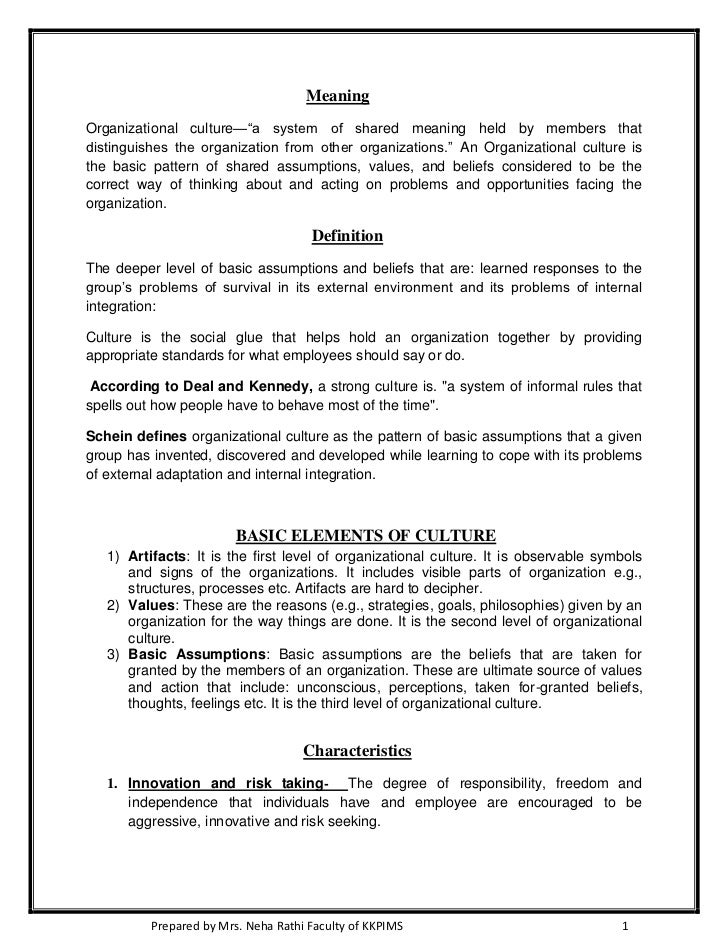
Deal And Kennedy Corporate Culture Pdf Free
Download pdf: Corporate Cultures The Rites and Rituals ofCorporate Life By Terrence E Deal Allan A Kennedy Download pdf: Corporate Financial Accounting 11th eleventhEdition By Carl S Warren Download pdf: Corporate Governance Cases and Materials By JRobert Brown.
Page/Link:Page URL:HTML link:The Free Library. Retrieved May 14 2020 fromThe New Corporate Cultures By Terrence E. Deal and Alan A. KennedyPublished by Perseus Book, Reading, Mass, 312 pages, $26.00TERRENCE DEAL and Alan Kennedy's The New Corporate Cultures:Revitalizing the Workplace After Downsizing, Mergers, and Reengineering,argues that the economic pressures of the last 15 years have destroyedthe cultural fabric of many major corporations. While these cost-focusedstrategies have boosted short-term share price, the authors believe thatlong-term value may suffer, as executives paid short-shrift to thepeople in their organizations whom they rely on to get the job done. Thebook focuses on the effects of these managerial trends, with interestinganecdotes and relevant evidence.In 1982, Deal and Kennedy collaborated on the pioneering CorporateCultures: The Rites and Rituals of Corporate Life - the work creditedwith putting corporate culture on the radar screen.
In the years since,there has been a deluge of books on this now-mainstream subject,including John Kotter and James Heskett's Corporate Culture andPerformance and James Collins and Jerry Porras's Built to Last. Thelatter two works supplied quantitative evidence to support Deal andKennedy's original findings: They demonstrated that companies withstrong cultures outperform 'run-of-the-mill' enterprises by asignificant margin.
Csiu milton pa. PA school districts. Types of Driver's Ed Courses in PAApproved Pennsylvania Driver's Ed classes are offered by a variety of providers throughout the state, including:. Private and charter schools. Vocational and technical schools.
Given the slew of new works and the economictransformations of the past two decades, Deal and Kennedy decided torevisit the issue of corporate culture. Their new book opens with a restatement of the thesis of CorporateCultures: 'Companies that focus on their people and create a socialenvironment - or culture - in which employees can thrive achievesuperior, long term business success.'
A robust culture, accordingto Deal and Kennedy, builds on shared values and beliefs held by boththe company and its employees. A mission statement that incorporatesthese values must be etched into the consciousness of all employees, notetched into corporate coffee mugs, posters, and other meaningless'corporate graffiti.' Ritual and ceremony ensure that acompany's culture consists not only of intangible beliefs but alsomeaningful communal activities. An informal communication networkreinforces these bonds on a day-to-day basis.After outlining the elements of a robust culture, Deal and Kennedydetail how it has fared in recent years. The central part of the bookcontends that cost-saving measures practiced with increasing intensityhave placed corporate culture 'in crisis.'
Often, the onlyemployee problem that gets significant management attention isstock-based executive compensation. Repeated downsizing leads toresentment of those re leased and acute insecurity of those remaining.The loss of corporate identity has not only gutted the workplace ofmeaning; it has fostered hostile relationships between employer andemployee.The final and most constructive part of The New Corporate Culturesoutlines the various measures that senior management can take to helprebuild fragmented cultures.Deal and Kennedy draw their anecdotes and examples from aconsistent set of companies primarily in the airline and computerindustry.
While this makes the book an easier and more entertainingread, one cannot help questioning if their assertions apply to othercompanies and other industries.Throughout their diagnosis of the current crisis in corporateculture, Deal and Kennedy attack 'young consultants' who areusually the advocates of downsizing and other cost-saving strategies.Their critique never progresses further than oblique references and onlyweakens their argument. If consultants are part of the crisis, thentheir role must be explained; if not, why mention them?Deal and Kennedy emphasize corporate culture to such an extentthat the reader wonders if profit and profitability ever enter intotheir equation. Only after the book is more than two-thirds done do theyprotest that they 'never argued that building and nurturing anappropriate culture was management's only mission.' Despite these problems, The New Corporate Cultures provides apenetrating assessment of the difficulties facing corporate cultures inthe late 1990s. Deal and Kennedy not only diagnose these problems, theyoffer alternative models as viable solutions.
The probing analysis ofthe modern employee's search for meaning in and out of theworkplace ensures that this book is more than a sequel but an enduringcontribution to management and leadership.Marc A. Feigen is the managing partner of Katzenbach Partners LLC, amanagement consulting firm based in New York. He co-authored a DIRECTORS& BOARDS special report, 'The Human Capital Audit: The MissingElement of Merger Strategy,' released in July 1999.